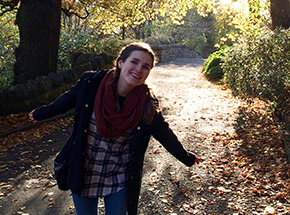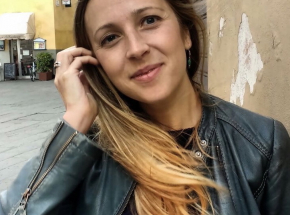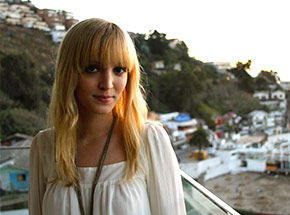- About AUP
- History of AUP
- Mission & Core Values
- Vision and Leadership
- AUP Recognition
- Alumni Success
- Campus Development
- Arts at AUP
- Policies & Guidelines
- Academics
- Undergraduate
- Graduate Programs
- MA in Diplomacy and International Law
- MA in Global Communications
- MSc in Human Rights and Data Science
- MA in International Affairs
- MA in International Affairs, Conflict Resolution, and Civil Society Development
- MSc in International Management
- MSc in Strategic Brand Management
- Find Your Thesis Advisor
- Previous Programs
- Cultural Program
- Faculty
- Summer School
- Research Centers
- The Center for Critical Democracy Studies
- The Center for Writers and Translators
- The George and Irina Schaeffer Center for the Study of Genocide, Human Rights and Conflict Prevention
- The Joy and Edward Frieman Environmental Science Center
- The Center for Media, Communication & Global Change
- Departments
- Academic Resources
- Academic Affairs
- Academic Calendar
- Academic Resource Center
- Library
- Registrar's Office
- Teaching and Learning Center
- Employer Network
- Accessibility & Accommodation Services
- AI@AUP: A Campus-Level Initiative
- Quai D'Orsay Learning Commons
- Paris as Classroom
- ACE Center
- Admissions
- Student Life
- Campus
- Student Leadership & Involvement
- Paris
- Support Services
- Student Development Help Desk
- Student Accounting Services
- Student Immigration Services
- Student Grievance Procedure
- Diversity and Inclusion
- Health & Well-being
- Digital Student Handbook
- News
- Events
- AUP Giving
- Housing Offer for 2024-2025
- IT Services
- Alumni
- About AUP
- History of AUP
- Mission & Core Values
- Vision and Leadership
- AUP Recognition
- Alumni Success
- Campus Development
- Arts at AUP
- Policies & Guidelines
- Academics
- Undergraduate
- Graduate Programs
- MA in Diplomacy and International Law
- MA in Global Communications
- MSc in Human Rights and Data Science
- MA in International Affairs
- MA in International Affairs, Conflict Resolution, and Civil Society Development
- MSc in International Management
- MSc in Strategic Brand Management
- Find Your Thesis Advisor
- Previous Programs
- Cultural Program
- Faculty
- Summer School
- Research Centers
- The Center for Critical Democracy Studies
- The Center for Writers and Translators
- The George and Irina Schaeffer Center for the Study of Genocide, Human Rights and Conflict Prevention
- The Joy and Edward Frieman Environmental Science Center
- The Center for Media, Communication & Global Change
- Departments
- Academic Resources
- Academic Affairs
- Academic Calendar
- Academic Resource Center
- Library
- Registrar's Office
- Teaching and Learning Center
- Employer Network
- Accessibility & Accommodation Services
- AI@AUP: A Campus-Level Initiative
- Quai D'Orsay Learning Commons
- Paris as Classroom
- ACE Center
- Admissions
- Student Life
- Campus
- Student Leadership & Involvement
- Paris
- Support Services
- Student Development Help Desk
- Student Accounting Services
- Student Immigration Services
- Student Grievance Procedure
- Diversity and Inclusion
- Health & Well-being
- Digital Student Handbook
- News
- Events
- AUP Giving
- Housing Offer for 2024-2025
- IT Services
- Alumni
Related Links
Alumna
Maria Lujan Tubio ’03
Major in Comparative Literature
Maria Lujan Tubio ’03
Maria turned a comparative literature degree from AUP into a successful worldwide career centered on digital learning and innovation. Today, she works for UNICEF in Nepal as an Education Specialist in the Regional Office for South Asia, covering eight countries.
What has most stayed with you about your time at AUP?
The amount of emphasis my professors placed on student–teacher contact was very special. Being able to have access to these wonderful scholars, who really are the best at what they do, made such a big difference to my education. Roy Rosenstein, for example, who taught comparative literature, was passionate and helped me think outside the box. I was constantly pushed further in a good way.
Your post-AUP trajectory took you into academia...
After I graduated, I went to England for a master’s and then the US to get my PhD. This was around the time that blended learning was increasingly common, and some university classes were starting to migrate online. I became very interested in this process and started working on it. Once I finished my PhD, I moved to Colombia to work as a professor and eventually became department head at an online university, teaching languages and cultural studies. I later did a post-doc in Brazil in digital literacy and inclusion.
What kind of innovation initiatives did you work on outside academia?
I helped establish the Colombian branch of an NGO that provided digital tools that people could use to report street harassment. I also worked for the government in Brazil, coordinating a social entrepreneurship program that covered more than 700 ICT learning centers in underserved areas of the State of Sao Paulo. Finally, I set up a school that used alternative and blended approaches to help students learn differently and work out who they are and what they want to do with their lives. I presented a TEDx talk about that initiative!
How did this lead to your work with the United Nations?
Eventually, I realized I wanted to try something different. I quit everything! It gave me the mental space I needed to work out where to go next. Four months later, I had three job offers! But the role at UNICEF was the only one that felt right. I went to work on digital learning in Timor-Leste – and then, all of a sudden, Covid-19 hit. Not many people in the region had a background in digital learning, so I was very in demand. Today, I work for UNICEF’s Regional Office for South Asia as an Education Specialist.
The pandemic has changed the global approach to online learning. What do you think is most important to focus on right now?
What’s important to me is bringing digital learning to children who have been historically left behind. This often means girls – due to gender biases and cultural perceptions surrounding the role of women and girls – but also children in remote areas and children with disabilities, who may require technological support to benefit from the learning process in schools. We are introducing “universal design for learning” into digital learning practices, so we can cater to all learning styles and be inclusive of children with specific educational needs.
Any advice for students looking to follow you into similar work?
I would advise identifying the key skills you have, but then focusing on using them to do what makes you happy. Think less and feel more – it may sound cliché, but it has worked for me! Sometimes, when we think too much, we don’t really end up where we want to be. Think about what’s important to you, and your career will eventually reveal itself.
Related
-

Chloe Elder ’14
Alumna
Read MoreChloe Elder ’14
Alumna
Being in Paris opened opportunities to explore beyond the books.
-

Professor Dennis
Faculty
Read MoreProfessor Dennis
Faculty
It’s important to have a sense of how one’s readers will experience things.
-

Gabrielle Flam ’10
Alumna
Read MoreGabrielle Flam ’10
Alumna
AUP cemented my desire to study literature and writing and helped spark my intellectual curiosity and creativity.
